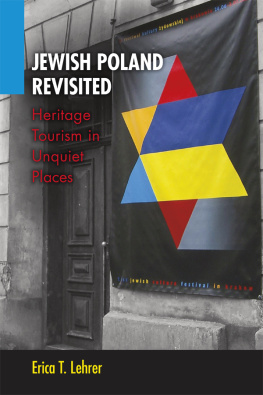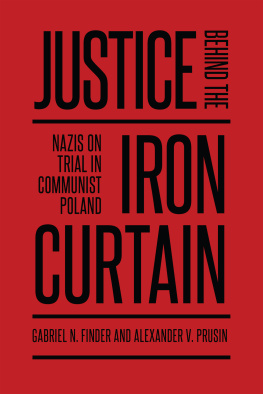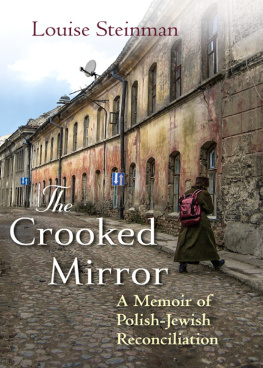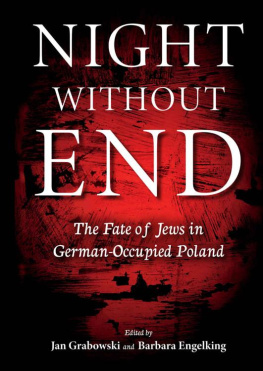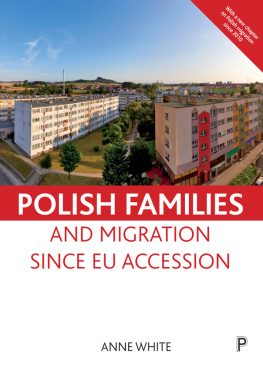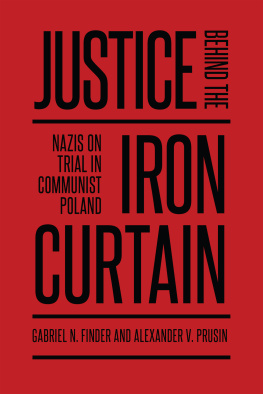
First published 1990
by Routledge
11 New Fetter Lane, London EC4P 4EE
Simultaneously published in the USA and Canada
by Routledge
a division of Routledge, Chapman and Hall, Inc.
29 West 35th Street, New York, NY 10001
Routledge is an imprint of the Taylor & Francis Group
This edition published in the Taylor & Francis e-Library, 2003.
1990 Antony Polonsky
Translation, selection and notes: Institute for Jewish Studies, 1988
All rights reserved. No part of this book may be reprinted or reproduced or utilized in any form or by any electronic, mechanical, or other means, now known or hereafter invented, including photocopying and recording, or in any information storage or retrieval system, without permission in writing from the publishers.
British Library Cataloguing in Publication Data
My brothers keeper?: recent Polish debates on the Holocaust.
1. Poland. Jews. Genocide. 19391945
I. Polonsky, Antony II. Institute for Polish-Jewish Studies
940.531503924
ISBN 0-203-40702-4 Master e-book ISBN
ISBN 0-203-71526-8 (Adobe eReader Format)
ISBN 0-415-04232-1 (Print Edition)
Library of Congress Cataloging in Publication Data
My brothers keeper?: recent Polish debates on the Holocaust/edited by Antony Polonsky.
p.cm.
Bibliography: p.
Includes index.
1. Holocaust, Jewish (19391945)PolandPublic opinion. 2. Public opinionPoland. 3. Anti-semitismPoland. 4. Poland Ethnic relations. I. Polonsky, Antony. II. Institute for Polish-Jewish Studies (Oxford, England)
DS135.P6M9 1989
940.531809438dc20 896208
The publication of this book has been made possible through the help of Mr Edward Roche, to commemorate his family, Rozenholc and Reichstein of Ldz, who perished in Treblinka.
Acknowledgements
This book owes its existence, above all, to the wise counsel and prompting of Rafael Scharf of London. It was he who brought to my attention the significance of Janlonskis article, The Poor Poles look at the Ghetto, and who stressed the importance of producing an English version of the ensuing debate. Without his always gentle, if insistent prodding, I doubt whether this volume would have seen the light of day. I am grateful too, to Jerzy Turowicz, editor of Tygodnik Powszechny, and to all the contributors for allowing their articles to appear in English. The translators, Teresa Halikowska-Smith, Antoni Bohdanowiiz, Ewa Kalina, Irena Powell and Joanna Hanson worked painstakingly in order to present in English these often complicated and subtle arguments. I was also greatly aided in my editorial work by Veronica Ions. Michael Larkin of Verbatim, and Colette Ritchie of Hampstead Secretarial Bureau were tireless in transcribing the numerous reworkings of the material. Finally we owe a special debt to Edward Roche whose financial support was, in a word often overused, but here totally appropriate, indispensable.
It has been a great privilege to prepare this edition of texts which show individuals wrestling with the awful moral problems posed by the Shoah. It is my hope that it will deepen our understanding of the terrible dilemmas faced by individuals and groups confronted by the Nazi policies of mass murder and that it will spur us to create a world in which such atrocities will no longer be possible.
1
INTRODUCTION
ANTONY POLONSKY
No less characteristic of the civilizing processis the development of that peculiar complex of emotions that we call shame or embarrassmentThe feeling of shame is a specific response, a type of anxiety which is developed in the individual by habit and which is automatically reproduced on certain occasions. It takes on its peculiar colouration from the fact that the person feeling it has done or is about to do something as a consequence of which he comes into conflict with people to whom he is linked in one or other manner, as well as with himself, with that part of his consciousness to which he concedes moral authority. The feeling of shamefear is not merely the product of a conflict between the individual and the prevailing social opinion: it is rather the outcome of a clash resulting when an individuals behaviour has brought him into collision with that part of himself which reflects this social opinion. It is a conflict with his own personality: he recognises himself as having fallen in his own self-esteem. What he fears is the loss of the respect of others to which he attaches value.
Norbert Elias, ber den Prozess der Zivilisation
Let us stop quibbling about extenuating circumstances, let us stop arguing and let us bow our heads.
Ewa Berberyusz, Guilt by Neglect (chapter 5)
The publication in the Krakw-based Catholic weekly Tygodnik Powszechny on 17 January 1978 of Jan Blonskis article The Poor Poles look at the Ghetto sparked off what has certainly been the most profound discussion since 1945 of the Holocaust in Poland and, above all, of the vexed question of the Polishresponse to the mass-murder of the Jews. This had long been a sore point in Polish-Jewish relations. Far from healing the divisions between Poles and Jews, the Nazi Holocaust, carried out as it was largely on Polish soil, considerably strengthened those barriers of suspicion, fear and even hatred between the two communities which had already begun to grow alarmingly in the last years before the outbreak of the war. To the small group of Jews who survived in Poland or who returned from the USSR, Polish behaviour during the war seemed to have confirmed their worst suspicions. It was clear to them that they were not wanted on Polish soil and even that it was dangerous for them to remain in Poland. In their eyes, the Poles had stood aside while the Nazis had implemented their murderous plans. The small amount of assistance provided was, in their eyes, outweighed by the activities of the denouncers and blackmailers, while the attitude of the majority was, at best, indifferent. This feeling of alienation was strengthened by the post-war insecurity and the anti-Jewish outbreaks which culminated in the Kielce pogrom of July 1946 in which at least 40 Jews were murdered. It would probably not be going too far to say that the scarring effects of the Holocaust were so traumatic that they made the establishment of a sizeable Jewish community on Polish soil in the post-war years impossible.
The impact of the Holocaust on the Poles was no less traumatic. It has been well described by the Polish-Jewish sociologist, Zygmunt Bauman:
But the Poles were scarred, too, and scaredby the crime committed on their soil before their eyes. Reactions to the harrowing experience were as if drawn from the psychology textbook. Some tried to talk themselves into believing that the Jews, after all, deserved what they got, brought the hatred upon themselves and hence no-one ought to be castigated for not helping them. Some others tried to shift all the guilt on to the murderers. The odds were overwhelming and nothing we could possibly have done would have balanced them out. Some sought consolation in remembering that they also were on the receiving end of the crime: we all suffered, we all have our dead to commemorate and the Jewish claim that their victims should be treated differently is just another insidious attempt to cast aspersions on their Polish hostsHowever different the reactions, they were all responses to an unresolved moral problem of suppressed guilt.
Indeed, the divisive effects of the Holocaust greatly complicated any rational discussion of Polish-Jewish relations during the Second World War, as well as making much more difficult any genuine Polish-Jewish reconciliation. The two sides argued not so much with, as past, each other, exchanging mutual recriminations in a tragic dialogue of the deaf. As Bauman has observed:


